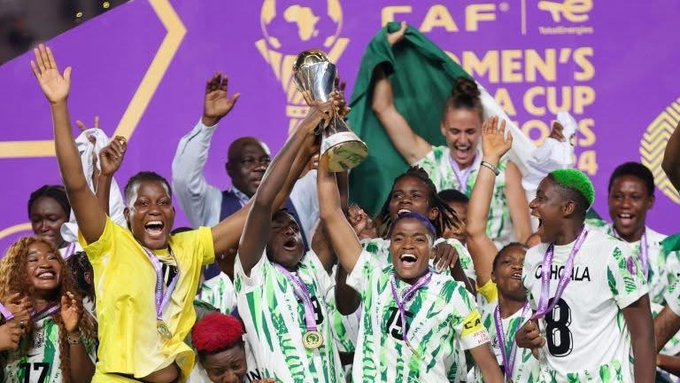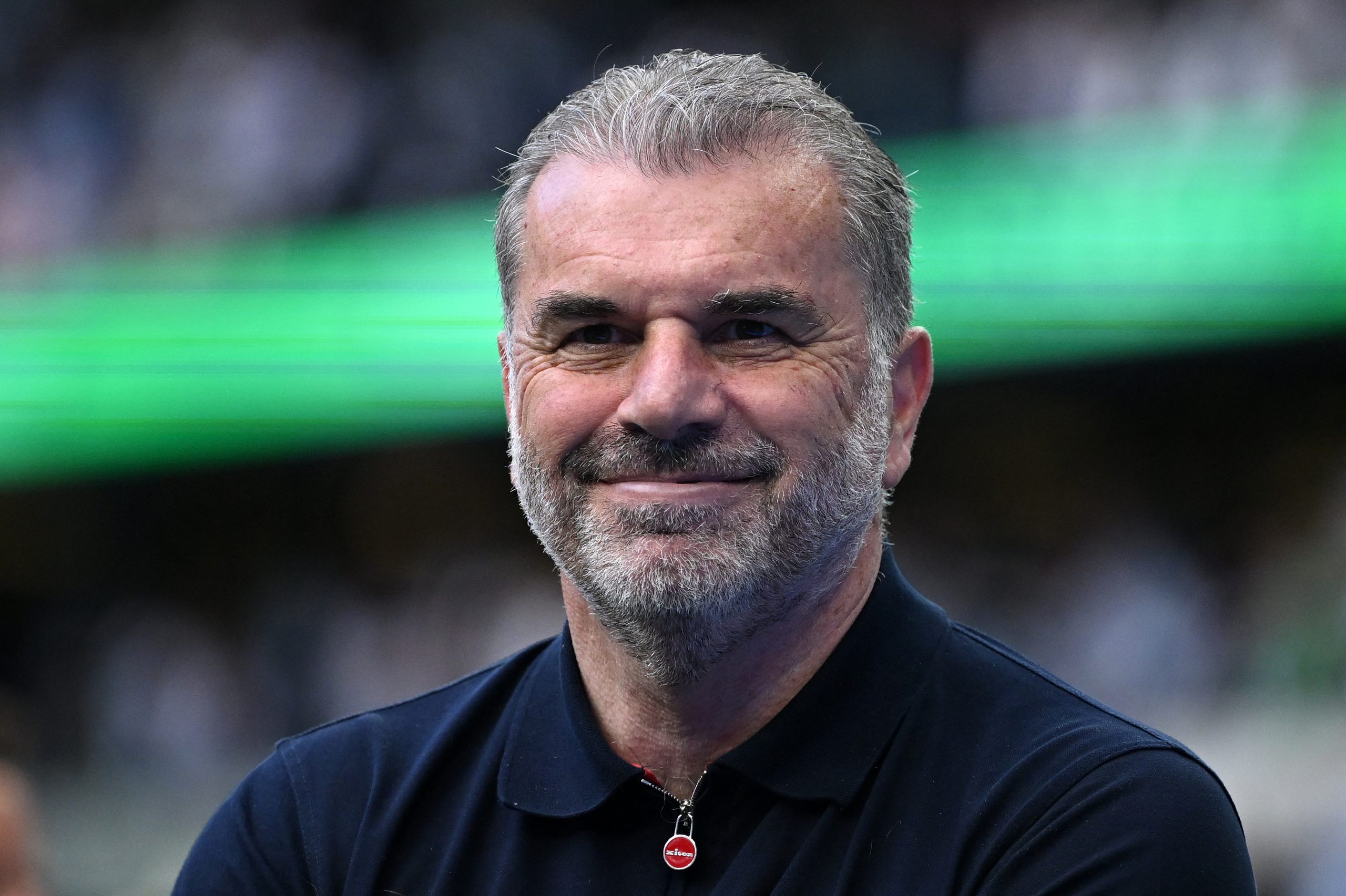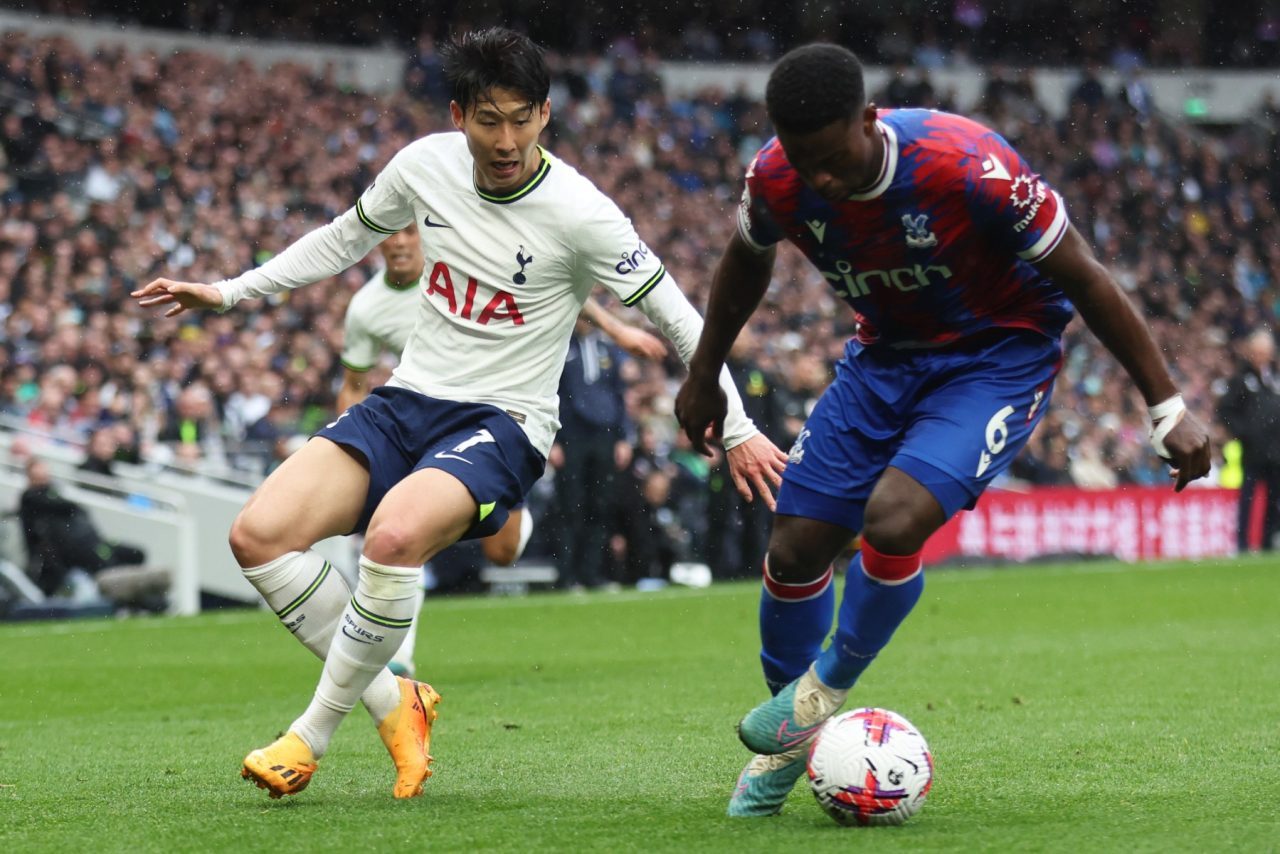The recent rewards announced by President Bola Tinubu for both the Super Falcons and D’Tigress have sparked a major debate on the way the country appreciates its heroes. Yet, attendant misgivings could be avoided if the Federal Government had in place a standard reward system for excellence across the board, GOWON AKPODONOR reports.
The Federal Government’s recent reward to players and coaches of the victorious national women’s football and basketball teams, which is the naira equivalent of $100,000 cash each, houses and national honours for the players, and the naira equivalent of $50 000, houses and national honours for the technical crew, has stirred quite some controversy.
But in the main, many are questioning the wisdom in handing over such humungous reward to athletes who, apart from allowances and bonuses they received during the various championships, also got part of the prize money handed out by organisers of both championships.
For instance, the Super Falcons got $1 million for beating Morocco in the final game of the African Women’s Cup of Nations. Thirty per cent of the sum, $300,000, went to the players, while the rest was kept by the Nigerian Football Federation (NFF), which prepared the team for the competition.
Although FIBA Africa did not disclose the total prize money earned by the D’Tigress after beating Mali to win their fifth consecutive AfroBasket title, the players are also expected to get a percentage of the sum won by the team.
This, apart from the honour of representing the country, some stakeholders say, is enough reward for a crop of players that have suddenly become national heroes due to their exploits on the global stage.
Across the globe, rewards for sporting excellence vary from country to country. For instance, about 24 hours after the Super Falcons accomplished the continental feat, which campaign they dubbed “Mission X,” England’s women’s national football team, the Lionesses, recorded a major upset in European football by beating world champions, Spain, to become European champions.
On return to England, the Lionesses had a motor parade around some major streets in London, while two members of the squad, Chloe Kelly and Hannah Hampton, were listed for gongs in the New Year’s Honours List. Their Dutch manager, Sarina Wiegman, was pencilled down to be made an Honorary Dame.
According to The Times, each member of the English squad pocketed £87,000 as a bonus payment for the duration of the tournament.
Before the championships in Switzerland, the Football Association (FA) and the Lionesses agreed on a payment structure that would see the 23 players selected for the tournament share 40 per cent of UEFA’s prize money pot between them, which equates to £4.3 million, working out to roughly £75,000 per player.
Also, for every match England played in Switzerland, an extra £2,000 was added to that total – taking it to £87,000. There was no additional cash or house reward from the United Kingdom government for members of the Lionesses for winning the title.
In some countries, lavish rewards ranging from luxury cars to apartments are bequeathed to winning athletes in addition to cash.
In some cases, just qualifying for the Olympic Games is enough cause for compensation. The Iraqi soccer team and weightlifter, Ali Ammar Yasser, received plots of land, monthly stipends, and a reward of 10 million Iraqi dinars (over $7,000) each after securing their spots in the Paris 2024 Olympics.
Other wealthy Gulf states like Bahrain and Qatar, which have a history of poaching foreign athletes with lucrative deals, are also known for offering hefty rewards in exchange for sporting medals.
The common denominator in all these is that athletes in saner and organised climes know exactly what they would gain if they brought honours to their countries during major championships. This is because the rewards are not left to the whims of a sitting president or benevolent government.
The Super Falcons already knew the amount of money that awaited them at various stages of the African Women’s Cup of Nations under CAF’s new enhanced prize structure.
For instance, after the win against Botswana in the quarterfinal, the Super Falcons were already assured of $200,000 in prize money as CAF’s new prize structure guaranteed that amount for each of the four quarterfinalists, including the Super Falcons.
Their 5-0 defeat of Zambia in the quarterfinals added $150,000 to their coffer, just as it increased to $500 000 when they defeated the Banyana Banyana of South Africa 2-1 to reach the final. And for their 3-2 victory against Morocco in the final, the Super Falcons grabbed a record-breaking $1 million. That was outside their camp allowances and match bonuses for the period of the tournament.
Broken down, apart from the windfall from the Federal Government, each of the players received N10 million from the Nigerian Governors’ Forum, each of the players received $12,500 from the CAF prize pool, while some governors gave members of the team from their states cash rewards ranging from N30 million to N50 million.

To some stakeholders, the reward announced by President Bola Tinubu for both the Super Falcons and the D’Tigress was a pleasant surprise, which is unprecedented in the history of Nigerian sports. But it is not the first time that a grateful country would be rewarding its sports heroes.
After the 1980 African Cup of Nations, where the Green Eagles won Nigeria’s first continental title on home soil, each of the players and officials was rewarded with houses in Festac Town, Lagos, brand new Peugeot cars and the national honour of Member of the Order of the Niger (MON) by the Federal Government.
The 1994 set of the Super Eagles also got national honours and three-bedroom bungalows in Abuja, while the 2013 players and their assistant coaches each got a cash reward of N5 million each, with the head coach getting N10 million, just as the two other members of the technical crew were given N2 million each.
Apart from footballers, other sportsmen who won laurels for the country, especially at such big competitions as the Olympics and Commonwealth Games, usually get what is generally known as “Presidential Handshake,” which is accompanied by any amount decided by the sitting president.
Stakeholders argue that there would not have been any controversy if the country had a stated reward for every class achievement in sports circles. There have also been questions on the logic behind lavishing so many gifts on sports stars, who have not sacrificed as much as soldiers and law enforcement agents, academics, medical doctors and nurses, and other essential societal contributors.
A former African tennis champion, Dr Sadiq Abdullahi, describes the criticism as understandable given the country’s current economic situation. He, however, added that the rewards have the potential to inspire a new generation of athletes, especially female athletes.
According to Abdullahi, President Tinubu is making a strong statement about sports development in Nigeria, considering the bold decision to scrap the Ministry of Youth and Sports Development and return the National Sports Commission.
On the call for a national reward system, he said: “The issue has been discussed and debated several times in the past, and many recommendations have been submitted to the National Sports Commission, but the files are gathering dust on the shelves.
“As a member of the Elite Athletes Development and Podium Board, we have deliberated on various reward models around the world, and are in our final stages to submit our recommendations to the National Sports Commission for implementation.”
Describing sports as a special endeavour that attracts special consideration, Abdullahi said: “Poor nations reward their performing athletes because of the personal, social and economic benefits that come with it. Nigeria has generated extra revenue from many sources, including the fuel subsidy removal, which allows the Federal Government to take the bold step. The concern, however, is whether this gesture is equitable and will be sustainable. Time will tell.”
A Lagos-based lawyer, Kehinde Nubi, said while the criticism of the president’s gesture is understandable in a society grappling with numerous systemic challenges, the specific nature of global sporting excellence is a truly exceptional domain.
The lawyer in a recent article said that it is also important to recognise that the argument often overlooks the broader socio-economic impact of such sporting achievements, which ripple beyond the pitch and deeply affect national morale, unity, and international perception.
Olympic gold medallist and former world wrestling champion, Daniel Igali, also has no problem with the recent rewards to the Falcons and the D’Tigress. But he faults the selective nature of these rewards.
He said: “To reward millionaires and neglect the struggling is to put yams in the barn of the well-fed, while the hungry watch from the windowsill. Let every child who picks up a javelin or a skipping rope or a canoe paddle feel, deep in their spirit, that this land sees them, honours them, and will not forget them. Let this be a country where ‘true’ peace and justice reign.”
Igali, who is the President of the Nigerian Wrestling Federation, said that athletes in other sports feel neglected despite consistently winning laurels for the nation at international events without commensurate efforts from the country’s leadership.
Abdullahi agrees with Igali, adding, however, “I would like to highlight our disingenuous approach to sports that ultimately robs us of its industry and sustainable success.”
He said: “The Super Falcons, for instance, got $2.95 (N4.5b) in cash from the Federal Government alone. Add N240 million from governors, N150 million from MTN, and at least N150 million from Premier Trust Bank, among others.
“Now consider this, 16 of the 24 Super Falcons launched their careers in the Nigeria Women’s Football League (NWFL), including the skipper Rasheedat Ajibade and deputy skipper Nnadozie. Yet, neither the government nor these organisations support the NWFL – the goose that lays the golden eggs.
“The prize money for the 2024/25 season of the NWFL was a record N25.5 million.
“Imagine how globally competitive we can be, in addition to the wealth that domestic sports create in societies, if we supported the NWFL.
“As I always say, Nigerians don’t support you until you hit it big. What we do is identify with your success if you find it. And we will load you up when we do.”
Former Green Eagles winger, Adegoke Adelabu, is among the stakeholders who believe that setting up a national reward system will end the debate on the quality of the money given to athletes who win major laurels for the country.
He described those criticising the president’s gesture to the Super Falcons and D’Tigress as missing the point. “I am saying this because the moment you are out of the scene, your value diminishes.”
Adelabu, a sports scientist and former coach of Eko United FC, said that people need to understand that a sportsman’s career can end at any time, and he will be made to struggle for the rest of his life.
“Our attention is always on the amount of money given to sportsmen, forgetting the concept of human life devoted to participating in sport in honour of the country. Some of the players (Super Falcons and D’Tigress) may have sustained injuries that will mark the beginning of the end of their careers, like many of us, without any insurance compensation.
“Also, this may be the most important moment in the lives of the players; hence, they deserve to be celebrated and compensated.”
He said that it is needless to compare the players with the military and the law enforcement agencies because no amount of money can compensate for the attendant risks in these professions.
“I expect the government to give scholarships to at least four children of anyone serving in the military or police force because of the risk factors confronting them every day.”






